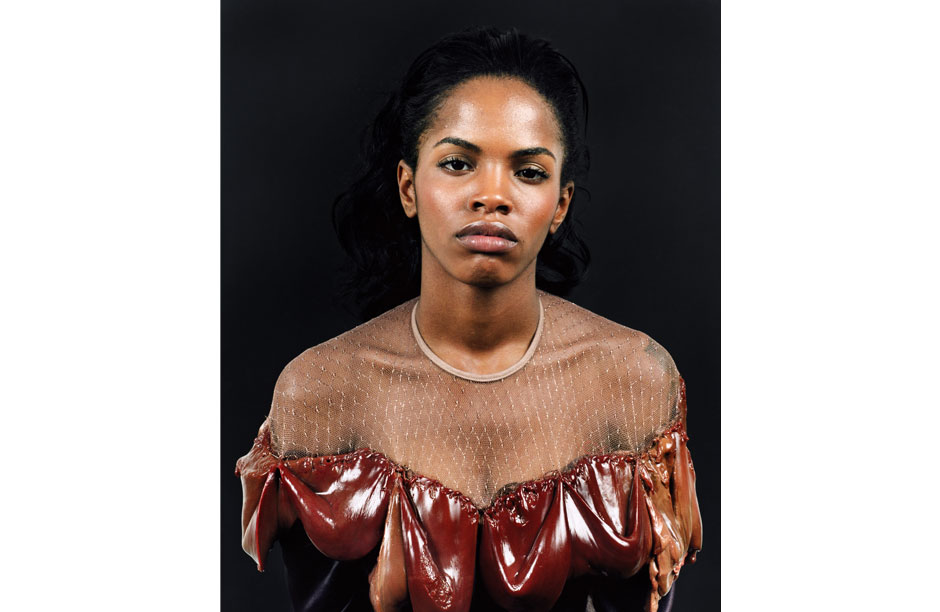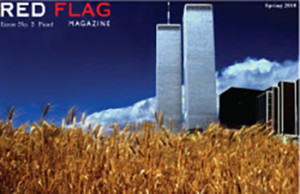Artist: Pinar Yolaçan

The two series of photographs featured in the story “Working in the Shadows” by Gabriel Thompson were created by Turkish-born artist Pinar Yolaçan. The first, completed in 2004 is titled “Perishables” and presents 12 individual portraits of women dressed in elaborately fashioned raw meat and animal parts. The palette is contained within a restricted range of ethereal shades of white and flesh. Most of the women are elderly, and all confront the viewer with a direct, confident stare.
The second series, “Maria”, was photographed over a year long period while on location in Itaparica, Bahia, Brazil. All the women are African-Brazilian locals she posed in much the same fashion as the women in “Perishables”, but this time she left her palette of icy life-drained hues to visit the crimson tones of fresh cut meat and the earthy blackness of wet dirt.
In a way, the 24 life-sized portraits of these two series can be experienced like the hours in a day – from the first streak of light to the inky darkness of night. Collectively these portraits contribute distinct voices to a dialog Yolaçan is putting forth about topics ranging from the impermanence of beauty and the grittyness of life to the transmutations of time from an abstract thought in the mind to a tangible effect upon the flesh.
In both she is paying meticulous detail to fashion, calling forth styles from the restrained puritanism of the Victorian-era and reaching as far back as the royal gowns worn by the European aristocracy that fueled the ships behind the colonization of regions such as Brazil’s Bahia coast. Upon closer look these beautiful garments are shockingly created from innards and sweat breads, tripe and placenta, or simply the discarded cut of a chicken’s feet. There’s a dark humor underpinning these alluring portraits and the message behind her use of irony can be interpreted as a call for accountability. It makes one ask the question: “If society were to wear the truth on their sleeve, is this what our clothes would look like?” Michael Thompson’s writing invites us to ask a similar question.
Pinar Yolaçan lives and works in Brooklyn, New York and Istanbul, Turkey.
